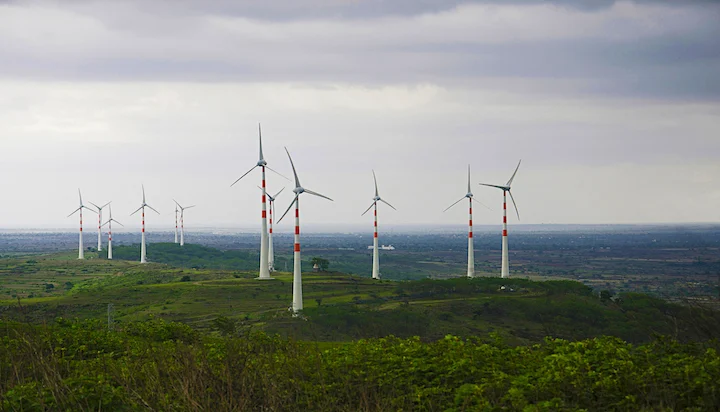The ongoing pandemic emphasises the need for access to quality healthcare, especially in rural areas, where key infrastructure is lacking. The second wave of the pandemic in India has seen a greater need for hospitalisation and critical care. To flatten the curve and reduce COVID-19 infections, access to vaccines are equally important. But with 25% of all vaccine supplied to health facilities getting wasted during storage and transportation, the vaccination program is at risk.
One of the reasons contributing to wastage is poor refrigeration, including exposure to temperature fluctuations. This happens when cold storage units do not get a reliable and stable power supply. Without reliable electricity, critical care units, Ice Lined Refrigerators (ILRs) and Neo-Natal ICUs are unable to function effectively, exacerbating India’s already high maternal and infant mortality.
With overburdened public health machinery, non-governmental healthcare systems, which aim to provide quality care for the poor, play a crucial role. Burrows Memorial Christian Hospital (BMCH), in the Cachar district of Assam, is one such entity. BMCH performed 600 deliveries and almost an equal number of surgeries in 2019-20. It treated over 3000 inpatients and over 21,000 outpatients in the same period. The hospital has the North-East’s first-ever radiation therapy unit and is the cold-chain focal point in the Lakhipur sub-division for India’s Universal Immunization Program. BMCH partners with the National Health Mission to run the Mother and Child Healthcare programs in the region.
But until October 2020, BMCH’s operations were often adversely affected due to unreliable grid-connected power supply. Doctors were forced to perform critical surgeries under torchlights from their mobile phones, and operating hours were scaled back. There is often a scarcity of diesel to operate backup power generators in these remote areas, making it particularly difficult to manage inpatients during night hours.
A success story created with various like-minded stakeholders
WRI India worked with BMCH to design solutions to their energy bottlenecks and helped identify sponsors and solar technology providers to install a Decentralised Solar Energy (DRE) facility connected to a battery storage unit at the hospital. DRE enables facilities not connected to the electric grid to produce and consume power onsite, without any transmission or distribution loss. And when connected to the grid, excess power could be fed into the system. In remote areas of Assam where grid infrastructure has been hard to build, DRE has proved to be a lifesaver.
The pandemic-linked lockdowns slowed down the installation process. But by October 2020, BMCH began drawing power from the solar photovoltaic (PV) system. Since then, critical services like the emergency, laboratory, ultrasound, and inpatient units have enjoyed an uninterrupted and stable power supply.
Evidence of how climate-resilient clean energy infrastructure can save lives
The solar PV installation in the hospital has also proved to be climate-resilient, as it was not damaged by the rains and thunderstorms in May 2021. Heavy rains are a common occurrence in many parts of Assam, which often destroy grid-connected electric lines, leading to prolonged and life-threatening power outages.
We have established a direct linkage to improved health services, as there has been a dramatic increase in the number of deliveries and surgeries performed at BMCH since the solar power installation. Monthly average deliveries went up by almost a third – from 52 to 69, as the battery storage unit ensured improved inpatient services at nights.
COVID ready
During the crippling second wave of the COVID-19 pandemic, Cachar registered a large number of positive cases when compared with the rest of Assam. As per government data, between May 22nd and May 31st, 2021, the district registered the second-highest number of COVID-19 positive cases in the state in ten days. Banskandi block, where BMCH is located witnessed a daily average of 20 positive cases. The hospital is now equipped to provide treatment to COVID-19 patients with an uninterrupted power supply.
The Intersection of Energy Access and Health
WRI’s partnership with BMCH has given us convincing empirical linkages between clean energy access and healthcare, proving that cost-effective, and targeted solutions to energy shortcomings could help in saving lives, while also enabling climate-friendly development.
There is indeed a cyclical linkage here to livelihoods as well. With stable energy access, patronage to BMCH hospital has also expanded leading to more doctors being hired with the rise in cases of deliveries. BMCH, a non-profit trust, has been able to showcase its work to charitable organisations and donors, and thereby raising funds to pay hospital staff at a time of distress across all sectors of the economy. This puts them in a strong position for improving overall healthcare in the district, including any future COVID-19 waves.
Source: eastmojo.com









